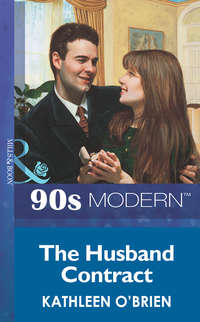
Полная версия
Betting on the Cowboy
“Thank you,” he said, shocked into revealing that he’d checked the denomination. “I mean...thank you, Ms. Wright. I hope you had a nice time at the party.”
“Yes,” she said automatically. She remembered him now. Tim. Tim Murfin. He owned the valet service, and she’d used his company before. He was honest, and he was smart. “Yes, it was a very interesting party.”
In her rearview mirror, she saw Charlie racing toward the portico. He was dressed, mostly, though he was still stuffing his shirt into his waistband with rushed fingers. “Bree, wait!”
“Excuse me,” she said politely to Tim, and he stepped away from the door, glancing toward Charlie with a furrowed brow.
As soon as the valet was clear, she pulled the door shut and stepped on the gas. She had no intention of letting Charlie reach the car. She wouldn’t put it past him to climb onto the hood and splay himself there until she agreed to listen to his stupid excuses.
Nothing he could say could possibly make any difference at all. He’d be busy trying to convince her that he really loved her, that his dalliance had meant nothing. He might even be craven enough to say he’d done it for them, for Breelie’s, to keep a customer satisfied.
He would imagine that he’d broken her heart. He’d think, no doubt, that she was hurt by his betrayal, and mourning their lost relationship.
But he’d be wrong. She didn’t give a damn about any of that. The minute she’d seen him jump from that bed, ungallantly covering himself and leaving Iliana helplessly naked before all her friends, she’d understood what the real victim of the humiliating melodrama would be.
Not their relationship. Not her heart.
No. She realized at that moment that she’d probably never loved him, not real love, not with her whole soul.
The damage he’d done was even worse than that.
What Charlie had destroyed, by sleeping with their most prominent client, and making a spectacle before half of Boston society, was Brianna’s career.
He had destroyed Breelie’s.
And she would never, ever, ever forgive him for that.
* * *
THE FRONT DRAWING room of Harper House, where Grayson Harper stood waiting for his grandfather, held at least ten red-silk-upholstered seats. He had his choice of armchairs, straight-backed chairs, two divans and one chaise longue. All unoccupied. All antiques, all chosen for comfort as well as beauty.
And yet he stood.
Sitting was something you did when you wanted to make yourself at home. Sitting was relaxed. Unguarded. Sitting made you the patiently waiting beta child to the superior alpha adult who would come stalking in, militarily erect, sneering down at his uninvited visitor.
So, no, he’d stand, thanks anyhow. Gray Harper was no one’s beta—especially not his grandfather’s. After all this time, he intended to meet the old bastard eye to eye.
Two could play the power game, and obviously his grandfather had made the first move already, keeping Gray cooling his heels down here for as long as possible. He glanced at the ormolu clock on the mantel, which ticked in the deep silence like someone tsking sardonically. The housekeeper, a woman Gray had of course never met, since the old man was too irascible to keep employees for long, had led him into the drawing room at least half an hour ago.
“He’s dressing,” the woman had said when she returned from announcing Gray. “He says to wait here, and he’ll be down soon.”
Dressing? Gray smiled with tight lips. His grandfather could have had a new suit of clothes bought, tailored and delivered on foot from the haberdashery on Elk Avenue in that much time.
But patience. Patience. After ten years, what was another ten minutes? He had something to say, and he planned to say it, even if he had to wait all night.
He went to the window and, putting his hands in his pockets, gazed out at the beautifully landscaped view of terraced lawn sloping down to the little town of Silverdell below. The sunset gleamed pink against the thin white spire of the Episcopal church and on the blue-gray rim of mountains in the distance.
Instantly, the sight took Gray back to his youth.
His youth. Not a place he wanted to linger. He squinted, imagining he could see rain on the horizon, even absurdly sniffing a hint of wood smoke in the April air, though the fireplace was cold and still.
Maybe that was why his grandfather was keeping him waiting. Letting him simmer in this ghost-filled room long enough to render him weak.
Frowning, he turned around again.
His grandfather stood in the doorway.
Gray inhaled sharply, startled in spite of having known full well the old man would jockey for an advantage somehow.
“Sir,” he said, out of habit more than anything else. Certainly not out of respect.
One corner of his grandfather’s thin mouth tilted up slightly, as if he understood the distinction. “Gray.”
Another family might have made a drama out of the moment. After ten years of complete silence and absolute estrangement, most people probably would have considered a display of feelings relevant. Shock, recriminations, tears, joy...anything. After all, neither grandfather nor grandson had been completely sure, until today, that the other still lived.
But old Grayson Harper the First would have considered any emotional outburst to be a sign of weakness. And young Grayson Harper the Third simply didn’t give a damn anymore.
“I’m sorry I kept you waiting,” his grandfather lied. He hobbled into the room, using a silver-tipped cane that Gray had never seen before. He had done the calculations before he arrived, so he knew that his grandfather had just celebrated his eighty-fourth birthday. The old man’s hair had been thickly silver as long as Gray could remember, and his face lined, so other than the limp, nothing much had changed.
“No problem,” Gray said, matching the tone of fake courtesy. “I’m in no hurry.”
“Ah. The luxury of time to kill.” His grandfather smiled coldly, putting both palms over the head of the cane and leaning subtly forward. “Still not gainfully employed, then? Or...what is the euphemism these days? Between jobs?”
A pulse started to hammer at Gray’s temple, and he took a consciously deep breath. That was cheap bait, a quick piece of dirty chum his grandfather probably tossed out by habit. He wasn’t eighteen anymore, and he didn’t have to rise to it.
“Exactly,” he agreed placidly. “Between jobs.”
The older man frowned. He shifted his weight, repositioning the cane. Clearly, his injury, arthritis, gout...whatever necessitated the cane...was bothering him. And yet he equally clearly didn’t want to be the first to acknowledge the need to sit.
For one ruthless second, Gray told himself he was glad. It served the old man right. Gray would happily stand here all night, if that meant his grandfather might know even a fraction of the pain he’d caused other people. People like Gray’s father and mother.
But the thought died instantly. In the end, it was beneath Gray to torture an old man—it was not his way, in spite of what his grandfather had modeled for him through the years.
So he took the nearest chair. Immediately after, his grandfather settled on the edge of the silk divan stiffly, as if his hip didn’t bend correctly anymore. He didn’t allow himself a sigh of relief, but the lines in his face eased slightly.
“So.” He massaged his palm into the head of the cane, eyeing Gray over it. “What brings you back to Silverdell?”
Just like that. No small talk. No “How are you?” or “Did you marry, have children, stay healthy, make money, buy a house...did you ever forgive me?”
Simply go straight to the point. Fine. Again, two could play that game.
“You bring me back,” Gray answered matter-of-factly.
“Is that so?” His grandfather raised his shaggy white eyebrows. “Not intentionally, I assure you.”
Gray shook his head a fraction of an inch. The mean old buzzard hadn’t softened a bit, had he? Well, that was probably for the best. His arrogance and unyielding antagonism made Gray’s job so much easier. As he’d journeyed back to Colorado from California, he’d wondered what he would do if the old man had grown weak, or senile, or sentimental. He’d wondered what he would say if his grandfather welcomed him home with open arms.
This was much cleaner. Now he could just speak his piece without wasting time trying to be diplomatic. And he could get out of this house before the past swallowed him up and broke his heart all over again.
“Nonetheless, it’s true.” He gazed at the old man, whose face was tinted a deceptively youthful pink by reflected sunset. “You really are the reason I’ve returned.”
His grandfather frowned, as if he had a sudden gas pain. “Why? Had you heard I was sick or something? Did you hope you could breeze in at the stroke of midnight, butter up a dying man and get yourself written back into my will?”
Gray laughed. “Nope. Hadn’t heard a thing. Believe it or not, no one out in California talks about you, your health or your money. Why, are you sick?”
“No.” More rubbing his palm into the head of the cane, more scowling from under those unruly eyebrows. “I’m old, and my hip isn’t what it used to be. But if you’re here for a deathbed vigil, you’ll have a long time to wait.”
“I’m not.”
“Well, what, then?” The old man grunted, a deeply skeptical sound. “You don’t really expect me to believe the money has nothing to do with it.”
Gray leaned back in his chair, smiling. “Oh, the money has everything to do with it.”
His grandfather’s eyes narrowed, but he didn’t speak. He simply waited. He obviously refused to give Gray the satisfaction of asking for details.
No problem. Gray had rehearsed this part often enough that he didn’t need prompting. He’d been rehearsing it for seventeen years, in fact. Since he was thirteen and filled with impotent fury at being so young, so helpless, so dependent on this tyrant. At being unable to summon the courage to say what ought to be said.
By now, Gray could have delivered this news in his sleep.
“It’s one hundred percent about the money,” he repeated. “But not your money. Mine.”
The expressive eyebrows lifted high. “Yours?”
“Yes. You see, I’ve decided that it’s time you returned my inheritance. I’ve come to tell you that, unless you voluntarily sign over every single penny you took from my father seventeen years ago, I intend to sue you for it.”
In the silence that followed, the mantel clock ticked like a time bomb. Gray could hear someone, probably the plump housekeeper, running water in the kitchen, though that part of the house was at least fifty yards away.
Finally his grandfather spoke. “Who told you I took money from him? I’ll guarantee your father never said that.”
“Not to me. He told other people, who told me. I don’t have any proof, of course. But I will get it, if you force me to. And the world will know you stole from your own son.”
Finally the old man rose, slowly. Gray watched how he relied on the cane, and wondered whether, without it, his grandfather would be able to stand at all. In spite of everything, pity stirred, and his words suddenly sounded cruel, too harsh for this fragile old man to take.
Gray shut his eyes, annoyed by his own vacillating. This was why he hadn’t come back to Silverdell for ten long years. It was just too damn emotionally confusing to feel intense love and intense hatred at the same time, for the same person.
His grandfather didn’t seem tormented by any similar ambivalence. He stared at Gray coldly.
“I seem to remember that the last time I saw you I warned you never to mention your father in my presence again.”
Gray nodded. “Yes. You did.”
“Still you dare to come here and...” The old lips thinned. “You dare to defy me.”
Gray shrugged. “Yes.” He glanced through the window, where an olive-green gloaming was overtaking the sunset. “I dare. And yet, as you can see, no lightning bolts have struck me down. The earth still turns.”
His grandfather’s face darkened. “You always were an impertinent boy, Gray. Too clever by half. I blame your mother for that. Hannah foolishly encouraged you to think—”
But Gray, too, was out of his chair now. “Leave my mother out of this.” He took one hard step closer. “You don’t have the right to speak her name.”
“Perhaps not.” Undaunted, his grandfather cocked a sardonic glance toward the window. “And yet...the earth still turns.”
For a minute, all Gray’s hard-won indifference, his emotional independence and rational perspective, melted away, and he was afraid he might hit the old man. Somehow he held himself in check, though the blood throbbed in his head, and his right hand seemed to have frozen in a tightly muscled fist.
God, this had been a mistake. Just being in this house again scrambled his brain. He had overestimated the distance a few years could put between him and the past. Suddenly, the onslaught of memories was just too much... He saw again, as if it were real, that last night...his father standing there, right there by the fireplace, drinking too much, taking offense at everything old Grayson said...
And his mother quietly weeping, her hand on his father’s arm, trying to keep him from finishing the last Scotch. The cold rain sheeting across the windows, the shadows of the elms fighting with the shadows of the fire.
Then the slamming doors, the parting threats and the rain-drenched, curving mountain road...
Damn it. Gray’s left elbow began to ache, where the bones had knitted but remained sensitive. It might as well have been days since the accident, not years. He couldn’t think straight in this room...this house. Maybe not even in this town.
Why on earth had he imagined that he owed his grandfather a warning? Had he really dreamed the old man might have grown a conscience and would meekly agree to admit his error and make restitution?
Fat chance of that. Old Grayson Harper had never been wrong in his life.
Besides, what constituted restitution, anyhow? Had Gray really thought that getting back his father’s money could begin to restore his losses? Grayson had killed Gray’s parents, as surely as if he’d put a gun to their heads. He could fill the Harper Marble Quarry with hundred-dollar bills, and it wouldn’t begin to make up for what he’d really stolen from that terrified thirteen-year-old boy.
The boy who had awakened in the hospital the next morning, his arms and legs and ribs broken, his head bandaged and his family dead.
With effort, Gray peeled his fingers away from his palm and pumped them to force sensation to return. He had been a fool to come. Warning? Ha. He should have just hired a lawyer, filed the suit and let the fur fly.
“Go ahead,” his grandfather said quietly, glancing pointedly at Gray’s tense hand. “Do it.”
Gray shook his head slowly. “I don’t hit people.”
“No.” The scoffing noise his grandfather emitted was eloquent. “And that’s the problem in a nutshell, isn’t it? You don’t do anything. You’re just like your father. You drift, charming and completely useless in your expensive suits, trying to get by on your clever one-liners and your smarter-than-thou attitude.”
He shook his head, as if to shake away the internal image. “You want money? Try earning some! If I’d ever seen you do a lick of real work, hard work, I’d leave it all to you. Every goddamn penny. Hell, if I could see you hold a real job for even one month, just four lousy weeks, I’d write you a check for the whole kit and caboodle!”
Dismissive old coot! Gray’s shoulders twitched, and he felt his legs burn slightly from the urge to stride out the door. The judgmental bastard was so clueless. He hadn’t understood his own son, not for a day of his life. Horrified at Gray’s father’s desire to be a musician, Grayson had forbidden it entirely, and steered him into a dozen “real” careers, each more ill suited than the one before.
And because, in the end, Grayson couldn’t make a successful pig farmer out of a poet, he decided the poet was a slacker and a fool.
Gray hesitated, fighting the urge to lash out and give the old man as good as he had dished. But if he let himself stalk off in a huff, what would he have accomplished? He calmed his pulse and considered what his grandfather had said. If Gray could hold a job, he’d return the money. Surely that was almost as good as an admission of guilt.
Could this be the opening he’d hoped for?
For several seconds, fury warred with common sense. Finally, common sense won.
He didn’t really want to bring a lawsuit. It would take forever, and it would cost a fortune on its own. He had no interest in humiliating his grandfather publicly. He wanted only the personal, private admission that the old man had wronged Gray’s father—and, in doing so, Gray himself.
He eyed his grandfather narrowly. “Will you put that deal in writing? If I do what you ask...if I hold a ‘real’ job for four weeks straight without bolting, you’ll write a check for every penny my father ever gave you to invest for him?”
The old man squinted at him in return as if he suspected a trick. “Not just any job. A hard job. A dirty job. The kind you turned your nose up at all your life.”
Gray wanted to ask him, “What do you know of my life?” The last time they’d seen each other, Gray had been nineteen, reckless, defiant and mixed up as hell. Because he’d refused to come back to Silverdell over his college summer breaks and dig marble in the family quarry, the old man had decided Gray was afraid of real work. Just like his father.
How could old Grayson have been so stupid as to miss the truth? Gray wasn’t afraid of work. He was afraid of Silverdell and what madness the memories might create in his heart. He was afraid of what living in this house another summer might make him do to his grandfather.
“Of course,” Gray said with feigned calm. “I’ll accept a job as dirty and demeaning as you want it to be. The only thing I won’t do is take a job at the quarry, or anywhere I would report to you.”
The old man worked his lips, clearly thinking fast and hard. “It would have to be here. In Silverdell, I mean. So that I could check on you. So that I could be sure it’s not a scam.”
“Of course.” Gray’s smile felt twisted. “I wouldn’t dream of asking you to trust me.”
If old Grayson recognized the sarcasm, he didn’t deign to acknowledge it. He scanned his grandson’s face so thoroughly it felt like a scouring.
“Then yes,” he said, finally. “If you can hold a real, Joe Lunchbucket job here in Silverdell, one with physical labor and no fancy title, and you can keep it for four weeks straight without bolting, or complaining, or getting yourself fired, I’ll write a check for any amount you ask.”
CHAPTER TWO
IT WAS TWO in the morning, and though Bree and Penny had been talking for hours, the conversation showed no signs of sputtering out.
They were ensconced in Penny’s suite in Aunt Ruth’s beautiful old San Francisco Victorian town house. The sitting area was close enough to Ruth’s sickroom to hear her if she called out, but private enough to let them chat in peace. They both still wore their day clothes because getting into pajamas seemed too much of an admission that the night might end.
Bree had been visiting her little sister for three whole days—a true luxury, since ordinarily the entire breadth of the country, and their respective obligations, lay between them.
When the sisters had been split up after their father went to jail, sixty-five-year-old Aunt Ruth had taken Rowena and Penny into her home. But she’d declared herself unequal to mothering all three sisters. After a tense period in which the state seemed likely to get involved, their mother’s college roommate had stepped up. Kitty Afton, a Boston divorcée with no children, had always been fond of Bree, and was glad to offer the teenager a home.
Bree had lived in Boston ever since. She told herself she loved it. And yet, three days in a new place, with a fresh perspective and her little sister’s calming presence, had done her a world of good. After the mess with Charlie...
She looked at Penny, suddenly wishing she could scoop her up and take her along when she returned to Boston. Without Charlie, without Breelie’s, her “perfect” life in the city seemed hollow. Even the trendy Brighton-area condo she’d snagged a year ago—but never had time to decorate—felt lonely and sterile, and she could hardly bring herself to set foot in it again.
But Penny would never agree to leave San Francisco. Ruth, now in her early eighties, had congestive heart failure and needed full-time care. She really ought to be in a nursing facility, Bree thought, but Penny would never abandon the old lady who had put a roof over her head when everything else in their world had exploded.
So Penny couldn’t leave, and Bree couldn’t stay...not that she’d been invited. Reluctant or not, she had to get back to Boston and see if she could possibly piece her career back together.
Her plane left from San Fran International first thing in the morning.
So they lingered here, not ready to sleep in spite of the late hour. Bree had stretched out on top of Penny’s small sofa, her head propped on the heel of her hand, and Penny had curled up in the adjacent armchair, sketching her sister as they talked.
“So what’s our plan for Charlie?” Penny’s face was still bent over her sketch, but her lips curved upward, and her smile could be heard in her words. “Shall we boil him in oil? Or can you think of something more creative?”
Bree laughed. Only Penny could say things like that and still look and sound positively angelic. She was undoubtedly the sweetest person Bree had ever met, but that didn’t mean she was saccharine or dull. In her gentle, Alice in Wonderland face, sugar and spice coexisted in complete harmony.
“Boiling in oil sounds fine to me.” But Bree yawned as she said it, which showed that, thank goodness, she’d finally lost her bloodthirsty enthusiasm for revenge.
The first day here, she’d spent hours detailing Charlie’s sins—which, it turned out, had only begun with Iliana Townsend, not ended there. He had also been cooking Breelie’s books for God knew how long, draining the savings to keep himself in cool suits and hot women. When news got out that he’d been sacked, vendors all over Boston practically set Bree’s phone on fire, calling to complain they hadn’t been paid in months.
It had taken Bree weeks to straighten it all out—and every penny of her personal savings, too. She’d stayed in Boston long enough to finish the last event already contracted...but, as she’d predicted, no one had called to hire her company for anything new.
She had one appointment still on the books, a golden wedding anniversary consult that had been set long before the Townsend fiasco and, miraculously, hadn’t yet been canceled. She tried to be optimistic. Maybe, from that small job, she could begin to rebuild the business.
But she’d had a few days of rare freedom, and, so ravaged by resentment and self pity she couldn’t stand her own company a minute longer, she’d impulsively booked a plane ticket to visit Penny.
Her little sister was probably the only person on earth Bree could have been completely honest with about how much Charlie’s betrayal had hurt. Though she was four years younger than Bree, and five years younger than Rowena, Penny was without question the kindest of the three Wright girls, and the wisest. She was a good listener, and a true empath, with no trace of the schadenfreude most people—especially Rowena—might feel on hearing of Bree’s misfortune.
Bree had always thought Penny possessed a touch of magic, though it sounded primitive and superstitious to say so. Maybe she should just say that, in less mystical terms, Penny was a...a born healer. And sure enough, over the days in Penny’s company, most of the poison and pain had been drained out of the topic of Charlie, leaving Bree tranquil for the first time in more than a month.









